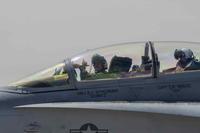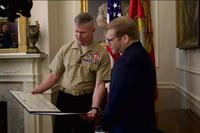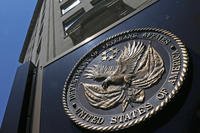The likely commander of US and NATO forces in Afghanistan, Lt. Gen. Stanley McChrystal, told the Senate Armed Services Committee that allies "could do more" to help in Afghanistan and noted several "shortfalls" that "hamper" execution of the counterinsurgency mission.
Allies could provide civilian advisors, police trainers and "governance mentors" if they are "unable to contribute additional military resources," the former head of Joint Special Operations Command McChrystal said in prepared answers to questions from the committee.
One of the most critical areas where allies could help is with traning of the Afghan National Police. The "most critical shortcoming for" Afghan police training has been shortage of trainers and mentors, McChrystal said in his answers to questions submitted before the hearing. Afghan police suffer "a much higher casualty rate at the hands of the insurgent forces than their Army counterparts," he noted.
The shortfalls McChrystal mentioned included headquarters elements, helicopters, airborne reconnaissance and medical evacuation equipment capabilities. Those missions, he said, "are just as critical to the overall success of the strategy in Afghanistan" as military assistance.
During the Tuesday morning hearing Sen. Carl Levin (D-Mich.), chairman of the committee, pressed McChrystal on the detainee treatment issue. The general pledged he "will strictly enforce" detainee treatment "consistent with" US and international law. There had been some unease among Senators as reports resurfaced about McChrystal's possible knowledge of or involvement with cases of detainee abuse. The general said during the hearing that he was "uncomfortable" with interrogation techniques that had the official sanction of the Bush administration.
In terms of the larger US strategy in Afghanistan, McChrystal said the US and its allies must ensure civilian casualties are kept as low as possible. McChrystal's comments largely echoed recent statements by Adm. Mike Mullen, chairman of the Joint Chiefs of Staff, that the US counter insurgency strategy will fail unless civilians are protected as well as possible from both death at the hands of allied forces and from insurgents.
However, the general did not back away from the use of direct action by Special Forces troops against insurgents. Direct action includes attacks on enemy camps, capturing enemy forces and, of course, killing them.
"Disruption of terrorist and extremist groups relies in part on direct and focused counterterrorism actions," he said. That means direct action will remain "an important aspect of disrupting our enemies. McChrystal stressed that such operations "alone can not defeat the Taliban" but they are "crucial" to effective counter-insurgency.








